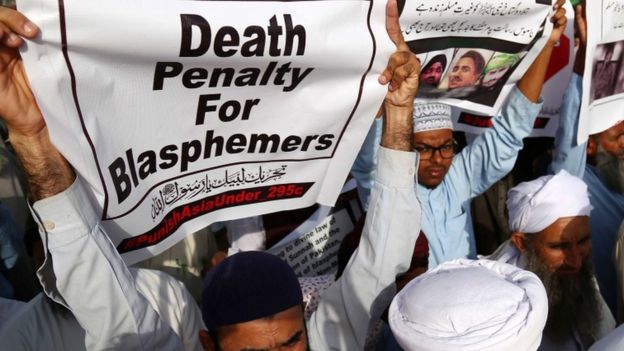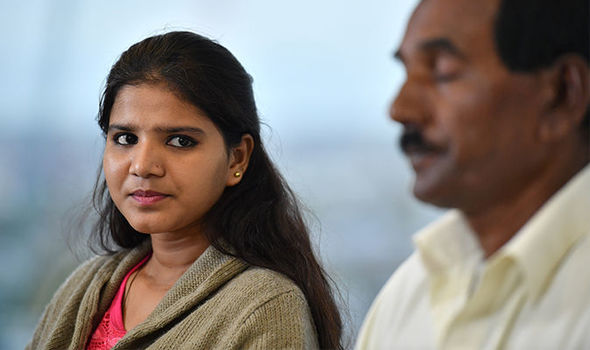Asia Bibi blasphemy acquittal upheld by Pakistan court
Pakistan’s top court has rejected a challenge to the acquittal of a Christian woman on blasphemy charges.
The Supreme Court upheld its decision to overturn Asia Bibi’s conviction and death sentence.
She was originally convicted in 2010 after being accused of insulting the Prophet Muhammad in a row with her neighbours, and spent eight years on death row.
She has always maintained her innocence in a case that has polarised Pakistan.
The Supreme Court’s quashing of her sentence last October led to violent protests by religious hardliners who support strong blasphemy laws, while more liberal sections of society have urged her release.
Hardliners had petitioned to overturn this ruling.
“Based on merit, this petition is dismissed,” Chief Justice Asif Saeed Khosa said in court on Tuesday.
What happens next?
The BBC’s Secunder Kermani in the Pakistani capital Islamabad says it is now expected that Asia Bibi will leave the country because of threats to her life.
Her two daughters are believed to have left Pakistan already, and it is expected that she too will now be granted asylum abroad.
Ms Bibi – also known as Asia Noreen – was unable to leave Pakistan while an appeal request was pending.
She has been held in protective custody at a secret location since her acquittal.
The country is braced for further protests by Islamist groups, although a number of prominent hardline clerics held responsible for the unrest last year are currently in jail following a government crackdown.
What was she accused of?
The trial stems from an argument Asia Bibi had with a group of women in June 2009.
They were harvesting fruit when a row broke out about a bucket of water. The women said that because she had used a cup, they could no longer touch it, as her faith had made it unclean.
Prosecutors alleged that in the row which followed, the women said Asia Bibi should convert to Islam and that she made offensive comments about the Prophet Muhammad in response.
She was later beaten up at her home, during which her accusers say she confessed to blasphemy. She was arrested after a police investigation.
Acquitting her, the Supreme Court said that the case was based on unreliable evidence and her confession was delivered in front of a crowd “threatening to kill her”.
Why was her case so divisive?

Islam is Pakistan’s national religion and underpins its legal system. Public support for the strict blasphemy laws is strong.
Hardline politicians have often backed severe punishments, partly as a way of shoring up their support base.
But critics say the laws have often been used to exact revenge after personal disputes, and that convictions are based on thin evidence.
The vast majority of those convicted are Muslims or members of the Ahmadi community who identify themselves as Muslims but are regarded as heretical by orthodox Islam.
Since the 1990s scores of Christians have also been convicted. They make up just 1.6% of the population.
The Christian community has been targeted by numerous attacks in recent years, leaving many feeling vulnerable to a climate of intolerance.
Since 1990, at least 65 people have reportedly been killed in Pakistan over claims of blasphemy.
Asia Bibi, who was born in 1971 and has four children, was the first woman to be sentenced to death under the blasphemy laws.
Source: BBC



